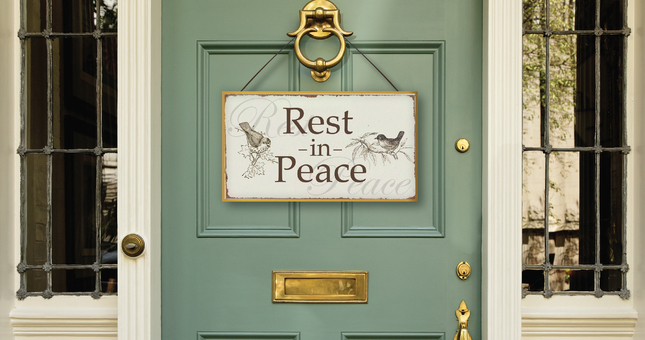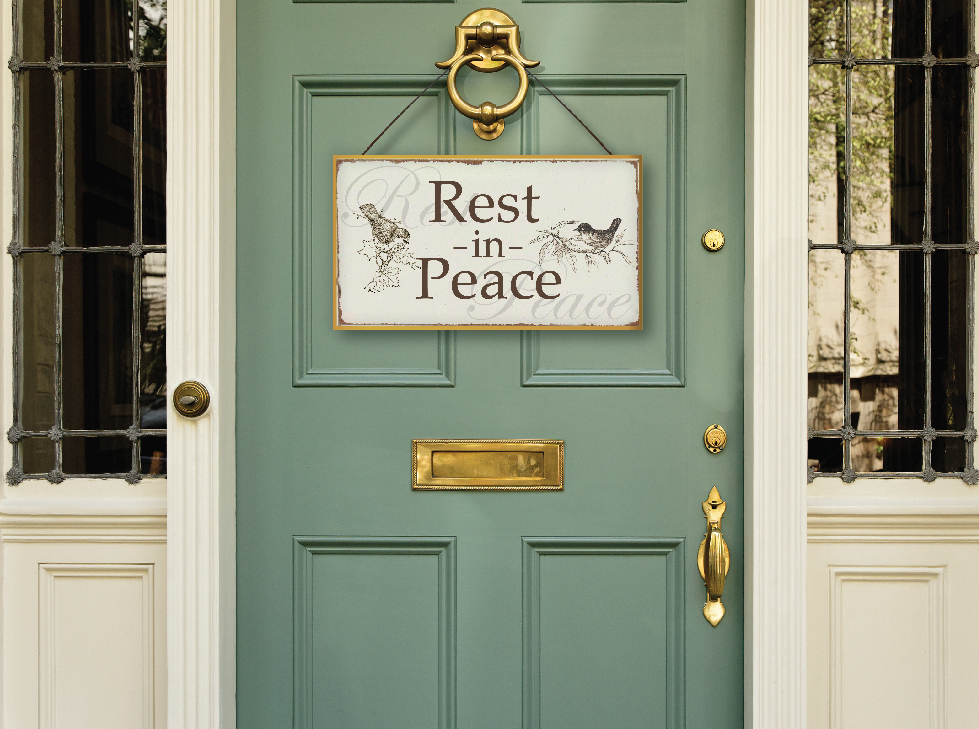
Rest in Peace
Whether it is on social media when a famous person passes away, at the end of a moving eulogy for a departed friend, scratched, graffiti-like, on a sign at the scene of a fatal traffic accident, or prominently displayed on a gravestone, "rest in peace" is a popular way to say goodbye to someone who has died. As is true with a lot of contemporary phrases, those who use it are not thinking about the historical context of the phrase. Its theological origins, ecclesiastical links with the Catholic church, and the debate about whether it is focused on well-being in the afterlife or the peacefulness of the body in the grave before the reunion with the soul, are not particularly relevant to the average person. "Rest in peace" is linked with death.
Even a cursory reading of the Bible will demonstrate that resting in peace is much more related to the quality of one’s life than to one’s state at death. God’s rest from the work of creation (Gn 2:3) is clearly unrelated to death and does not imply that he was no longer vigilant, active, and working. Instead, it suggests a posture toward his work. Similarly, God’s invitation to give the weary a resting place (Is 28:12) so they have repose is not about sleeping, in life or in death, but about living. When Moses asked God questions about his call to leadership, God’s response was, “My presence will go with you and I will give you rest” (Ex 33:14)—an affirmation not that work would stop but that the work would be done differently.
Jesus, describing a work implement employed in an agricultural setting, gives an invitation to take on his yoke by saying, “Come to me, all you who are weary and burdened, and I will give you rest” (Mt 11:28). Resting in peace is not taking the yoke off but bearing it with a particular kind of spirit and attitude, an argument that is made powerfully in Hebrews chapters 3 and 4.
Biblical rest is not solely about death or sleeping or taking an afternoon nap. So much of the biblical teaching about rest is about security, the absence of danger and anxiety, along with the presence of peace, ease, and confidence. It is about the way in which we do our work. Finding our rest in Christ does not make us unproductive, uncommitted, or uninvolved. Rather, the tone and spirit of our involvements are substantially different than those who do not find their security in Christ. Maybe this is what Isaiah (57:20-21) was driving at when he said:
But the wicked are like the tossing sea, which cannot rest, whose waves cast up mire and mud. “There is no peace,” says my God, “for the wicked.”
Reframing rest as a context for doing rather than the absence of it, makes us realize that how we start our day is crucial. I have found the words of C.S. Lewis in Mere Christianity helpful in this regard:
The real problem of the Christian life comes where people do not usually look for it. It comes the very moment you wake up each morning. All your wishes and hopes for the day rush at you like wild animals. And the first job each morning consists simply in shoving them all back; in listening to that other voice, taking that other point of view, letting that other larger, stronger, quieter life come flowing in. And so on, all day. Standing back from all your natural fussings and frettings; coming in out of the wind.
When the morning begins with contemplative prayer that listens to that other voice, the day is more restful quite apart from how busy our schedules may be.
Reframing rest as a context for, rather than an absence of, doing makes us realize that our day does not need to be captivated by the allure of speed. Believing that working, walking, talking, and interacting with rapidity is virtuous, or that working like a madman for twelve hours and sitting down with my wife for an hour is a balanced life, or working frantically for months on end and then having a week-long holiday reflects work/life balance, are great illusions sold to us by a frenetic world. It may be that the presence of the Slow Movement in contemporary culture, with its valuing of the tortoise over the hare, has a lot to teach the church.
If our days were characterized by a rhythm that lacked a frantic compulsivity, the day would be more restful regardless of our busy schedules. Maybe "rest in peace" could be placed over the inside of the door in our homes as a reminder and description of life rather than on our tombstones as a description of death.





